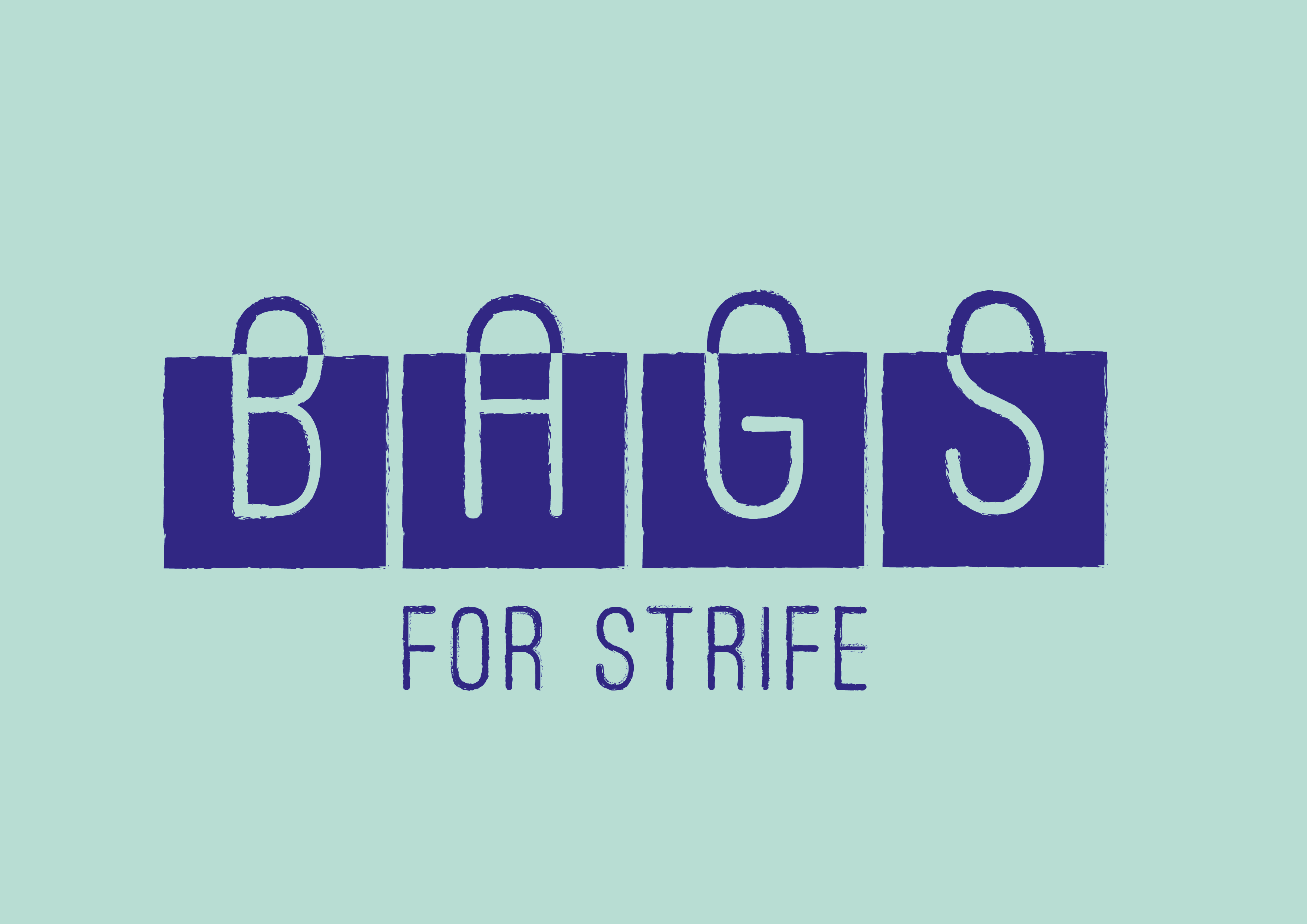Trust Disputes
Forbes Solicitors' trust disputes solicitors provide expert legal advice on resolving disputes related to trusts. Our experienced team can assist with a range of issues, including breach of trust, trustee disputes, and contentious probate. We understand the importance of maintaining good relationships within families and work to achieve the best possible outcome for all parties.
More about Trust disputes, sham trusts and offshore dispute
In a trust, assets are managed by one person or people (the trustee) for the benefit of another person or people (the beneficiary). Disagreements can arise between the trustees or between the trustees and the beneficiaries about how the trust is or should be managed. The validity of a trust can also be challenged and it is possible for the trust to be set aside if the proper legal formalities have not been complied with. Trusts can also be set aside if they are a sham. This means that the trust is just a pretence, created to deceive or defraud another person or government authority.
Offshore disputes involve trust assets or activities located in or administered by a foreign jurisdiction. Trust disputes can arise for a variety of reasons and, because the law on trusts is not always straight forward, legal disputes can often have serious consequences on both the trust and for its beneficiaries.

At Forbes, we have a specialist, dedicated team of solicitors who specialise solely in trust disputes, allowing us to deal with cases of any size, from issues relating to a small family will or trust, to large, complex trusts with an international element. Our expert solicitors work alongside an international network of specialists, giving us unrivalled experience of dealing with cases that are of high value and with an international element.
Trusts can be unwritten or can be created by a will or by a trust deed, and often trustees find the position thrust upon them. Trustees have a list of fairly complex and sometimes onerous duties, which include acting in the best interests of the beneficiaries, acting impartially and a duty to be ready with accounts.
Because of this, legal disputes can often arise in a range of circumstances, including:
Feuding beneficiaries. This could be one of the trust beneficiaries at loggerheads with other beneficiaries, or it could be the trustee faced with various demands from different beneficiaries.
Breach of trust. If a trustee has not acted in accordance with their duties or have not acted in the best interests of the beneficiaries, then they may be in breach of trust.
Sham trusts. If a trust appears to create legal rights and obligations which are different from the actual legal rights and obligations which the parties intend to create, then the trust may be a 'sham' and subject to challenge.
Issues relating to trust administration. If you suspect that a trustee has not properly administered a trust, then there may be a breach of trust.
Claims by, or against, trusts. Claims come in a wide variety of forms, and if you are faced with a claim, then get in touch with our team for a free, no obligation consultation
Beneficiaries' and third-party entitlement to information. Beneficiaries and third parties are only entitled to certain information about a trust, which can result in disputes.
Removal of trustees. If a trustee is in breach of trust or is unsuitable to act as trustee, then an application can be made for their removal.
Protecting trust assets. If you suspect trust assets are being misused or are being dissipated, then you need to act quick. We can advise you on action that can be taken, including applying for an injunction.
At Forbes, we have a specialist, dedicated team of solicitors who specialise solely in trust disputes, allowing us to deal with cases of any size, from issues relating to a small family will or trust, to large, complex trusts with an international element. Our expert solicitors work alongside an international network of specialists, giving us unrivalled experience of dealing with cases that are of high value and with an international element.
Trusts can be unwritten or can be created by a will or by a trust deed, and often trustees find the position thrust upon them. Trustees have a list of fairly complex and sometimes onerous duties, which include acting in the best interests of the beneficiaries, acting impartially and a duty to be ready with accounts.
Because of this, legal disputes can often arise in a range of circumstances, including:
Feuding beneficiaries. This could be one of the trust beneficiaries at loggerheads with other beneficiaries, or it could be the trustee faced with various demands from different beneficiaries.
Breach of trust. If a trustee has not acted in accordance with their duties or have not acted in the best interests of the beneficiaries, then they may be in breach of trust.
Sham trusts. If a trust appears to create legal rights and obligations which are different from the actual legal rights and obligations which the parties intend to create, then the trust may be a 'sham' and subject to challenge.
Issues relating to trust administration. If you suspect that a trustee has not properly administered a trust, then there may be a breach of trust.
Claims by, or against, trusts. Claims come in a wide variety of forms, and if you are faced with a claim, then get in touch with our team for a free, no obligation consultation
Beneficiaries' and third-party entitlement to information. Beneficiaries and third parties are only entitled to certain information about a trust, which can result in disputes.
Removal of trustees. If a trustee is in breach of trust or is unsuitable to act as trustee, then an application can be made for their removal.
Protecting trust assets. If you suspect trust assets are being misused or are being dissipated, then you need to act quick. We can advise you on action that can be taken, including applying for an injunction.


What is a breach of trust?
A 'breach of trust' is an act (or a failure to act) by a trustee that is not authorised either by the trust document or by law. This could include:
A trustee distributing assets to a beneficiary who is not entitled to them under the terms of the trust document.
A trustee investing the trust fund in a way not permitted by the express or statutory powers of investment.
A trustee breaching a fiduciary duty - for example, the duty to bring trust property under their control and act impartially.
At Forbes, our expert team act for beneficiaries in bringing claims against trustees where they are in breach of trust, as well as acting for trustees in defending such actions. For more information, or to speak to our expert team, contact us today.
What is a breach of trust?
A 'breach of trust' is an act (or a failure to act) by a trustee that is not authorised either by the trust document or by law. This could include:
A trustee distributing assets to a beneficiary who is not entitled to them under the terms of the trust document.
A trustee investing the trust fund in a way not permitted by the express or statutory powers of investment.
A trustee breaching a fiduciary duty - for example, the duty to bring trust property under their control and act impartially.
At Forbes, our expert team act for beneficiaries in bringing claims against trustees where they are in breach of trust, as well as acting for trustees in defending such actions. For more information, or to speak to our expert team, contact us today.

VivianeFrom the beginning and from first contact, Tom Howcroft at Forbes stood well above any other firms that I approached: Responsive, respectful, courteous, professional, knowledgeable, clear and helpful in every way. The whole process of my claim was handled efficiently and also with clarity & transparency from the outset regarding costs. Clear requests for relevant & necessary information were well communicated, and therefore supplied & delivered to present a strong & legitimate case. At all times throughout the year up to Mediation, Tom was there to answer any questions & queries, and to prepare me for the process. Mediation Agreement was achieved, and the funds delivered to my bank on the due date.

What are the time limits for bringing a breach of trust claim?
For the majority of trust disputes, the limitation period in which you can file a claim is normally 6 years from the date of knowledge of the breach, unless fraud is alleged.
Time is often critical in trust disputes, particularly if you suspect that a trust's assets are being misused or dissipated. If you are a trustee, you are under an obligation to act in the best interests of the beneficiaries and protect the trust assets, so it is imperative that you seek legal advice at the earliest possible opportunity.
What are the time limits for bringing a breach of trust claim?
For the majority of trust disputes, the limitation period in which you can file a claim is normally 6 years from the date of knowledge of the breach, unless fraud is alleged.
Time is often critical in trust disputes, particularly if you suspect that a trust's assets are being misused or dissipated. If you are a trustee, you are under an obligation to act in the best interests of the beneficiaries and protect the trust assets, so it is imperative that you seek legal advice at the earliest possible opportunity.


Can a beneficiary dissolve a trust in a dispute?
In some circumstances, if all the current and remainder beneficiaries agree, a trust can be dissolved. Generally the manner by which a trust can be brought to end depends on the type of trust. In cases such as this, all of the trust's income and assets are distributed to its beneficiaries. For more information about dissolving a trust, contact our team of international trust dispute solicitors.
The Contentious Trusts and Probate team at Forbes have significant experience in a wide range of trust issues, from complex trusts with an offshore element, charitable trusts and SIPP/SSAS pension trusts to Will trusts.
Can a beneficiary dissolve a trust in a dispute?
In some circumstances, if all the current and remainder beneficiaries agree, a trust can be dissolved. Generally the manner by which a trust can be brought to end depends on the type of trust. In cases such as this, all of the trust's income and assets are distributed to its beneficiaries. For more information about dissolving a trust, contact our team of international trust dispute solicitors.
The Contentious Trusts and Probate team at Forbes have significant experience in a wide range of trust issues, from complex trusts with an offshore element, charitable trusts and SIPP/SSAS pension trusts to Will trusts.


Why choose our trust disputes solicitors?
At Forbes Solicitors, our trust disputes lawyers have extensive experience in handling complex and high-value trust disputes. We provide tailored legal advice and representation to clients, ensuring that their interests are protected and their objectives are achieved. Our team is dedicated to delivering exceptional client service, and we work closely with our clients to understand their needs and provide practical solutions. With a proven track record of success, we are the trusted choice for clients seeking expert advice on trust disputes.
Why choose our trust disputes solicitors?
At Forbes Solicitors, our trust disputes lawyers have extensive experience in handling complex and high-value trust disputes. We provide tailored legal advice and representation to clients, ensuring that their interests are protected and their objectives are achieved. Our team is dedicated to delivering exceptional client service, and we work closely with our clients to understand their needs and provide practical solutions. With a proven track record of success, we are the trusted choice for clients seeking expert advice on trust disputes.


Who do our trust disputes solicitors help?
Our team of trust disputes solicitors help individuals and families who are involved in disputes over trusts, including beneficiaries, trustees, executors, and other interested parties.
How can our trust disputes lawyers help?
If you find yourself in need of a trust disputes lawyer, we can help by providing legal advice and representation in disputes related to trusts, including breach of trust, mismanagement of trust assets, disputes over trust distributions, and challenges to the validity of a trust. We can assist in negotiating settlements, mediating disputes, and litigating in court if necessary. Our goal is to protect our clients' interests and ensure that their rights are upheld in trust disputes.
Who do our trust disputes solicitors help?
Our team of trust disputes solicitors help individuals and families who are involved in disputes over trusts, including beneficiaries, trustees, executors, and other interested parties.
How can our trust disputes lawyers help?
If you find yourself in need of a trust disputes lawyer, we can help by providing legal advice and representation in disputes related to trusts, including breach of trust, mismanagement of trust assets, disputes over trust distributions, and challenges to the validity of a trust. We can assist in negotiating settlements, mediating disputes, and litigating in court if necessary. Our goal is to protect our clients' interests and ensure that their rights are upheld in trust disputes.

Trust Disputes FAQ
What is an example of a trusts dispute?
An example of a trusts dispute could be a disagreement between beneficiaries and trustees over the distribution of assets in a trust. This could arise if the beneficiaries feel that the trustees are not fulfilling their duties properly or if there is a dispute over the interpretation of the trust deed. In such cases, the beneficiaries may seek legal advice and take legal action to resolve the dispute.
How to dissolve a trust?
To dissolve a trust the trustees must follow the terms of the trust deed and any applicable laws. This may involve distributing the trust assets to the beneficiaries, terminating the trust, and filing any necessary tax returns. If the trust deed does not provide for dissolution, the trustees may need to seek court approval. It is recommended to seek legal advice before dissolving a trust.
What are the common causes of trust disputes?
Common causes of trust disputes include disagreements over the interpretation of the trust deed, disputes between beneficiaries, disputes between trustees, and allegations of breach of trust or misconduct by trustees. Other causes may include disputes over the distribution of trust assets, disputes over the appointment or removal of trustees, and disputes over the validity of the trust itself.
Who can bring a trust dispute?
A trust dispute can be brought by any person who has a legitimate interest in the trust, such as a beneficiary, trustee, or settlor. The dispute can be related to the administration of the trust, interpretation of the trust deed, or any other matter that affects the rights and interests of the parties involved. The dispute can be resolved through negotiation, mediation, or litigation in the courts.
What are the different types of trusts?
There are several types of trusts in UK law, including bare trusts, discretionary trusts, interest in possession trusts, and accumulation and maintenance trusts. A bare trust is a simple trust where the beneficiary has an absolute right to the trust assets. A discretionary trust gives the trustees discretion over how to distribute the trust assets. An interest in possession trust gives the beneficiary a right to the income from the trust assets. An accumulation and maintenance trust is designed to provide for the maintenance of a beneficiary until they reach a certain age.
Can you challenge a trust fund?
Yes, a trust fund can be challenged under certain circumstances, such as if there is evidence of fraud, undue influence, or lack of capacity on the part of the settlor. Additionally, beneficiaries may be able to challenge the actions of trustees if they believe they are not acting in the best interests of the trust. However, it is important to seek legal advice before attempting to challenge a trust fund.
How to challenge a trust
To challenge a trust one can file a claim in court alleging that the trust was created under undue influence, fraud, or lack of capacity. The claimant must provide evidence to support their case and may need to prove that the trust was not properly executed or that the trustee breached their duties. It is important to seek legal advice before taking any action to challenge a trust.
What is the role of a trustee in a trust dispute?
The role of a trustee in a trust dispute is to act impartially and in the best interests of the beneficiaries. They must ensure that the terms of the trust are followed and that any disputes are resolved fairly. The trustee may need to seek legal advice and may be required to appear in court to defend their actions. The trustee's duties and responsibilities are governed by the Trustee Act 2000 and other relevant legislation.
Can a trust dispute be settled out of court?
Yes, a trust dispute can be settled out of court through alternative dispute resolution methods such as mediation or arbitration. These methods can be less costly and time-consuming than going to court. However, if the parties are unable to reach a settlement through these methods, the dispute may need to be resolved in court. The availability of out-of-court settlement options will depend on the specific circumstances of the case and the willingness of the parties to engage in alternative dispute resolution.
How long does a trust dispute typically take to resolve?
The length of time it takes to resolve a trust dispute can vary greatly depending on the complexity of the case and the willingness of the parties to reach a settlement. Some disputes can be resolved within a few months, while others may take several years to reach a final resolution.
What are the consequences of a trust dispute for the beneficiaries?
If a trust dispute arises, it can have significant consequences for the beneficiaries. The dispute can delay or even prevent the distribution of assets, causing financial hardship for the beneficiaries. It can also lead to legal fees and costs, which may reduce the value of the trust. In some cases, the dispute may result in the removal of the trustee, which can further delay the distribution of assets. Ultimately, the beneficiaries may receive less than they would have if the dispute had not occurred.
Recognition for our work






Recognition for our work
Help in Making a Trust Disputes Claim
Get in touch with our teams today to benefit from their vast experience in providing professional legal services for cases involving Trust disputes, sham trusts, and offshore disputes.
We deal with clients across the country so don't hesitate to speak with us now.
Our dedicated Contesting a Will team



Contact Us
If you have a general enquiry then please fill in your details and someone will contact you.
0800 689 3206 - Monday - Friday: 09:00 - 17:00